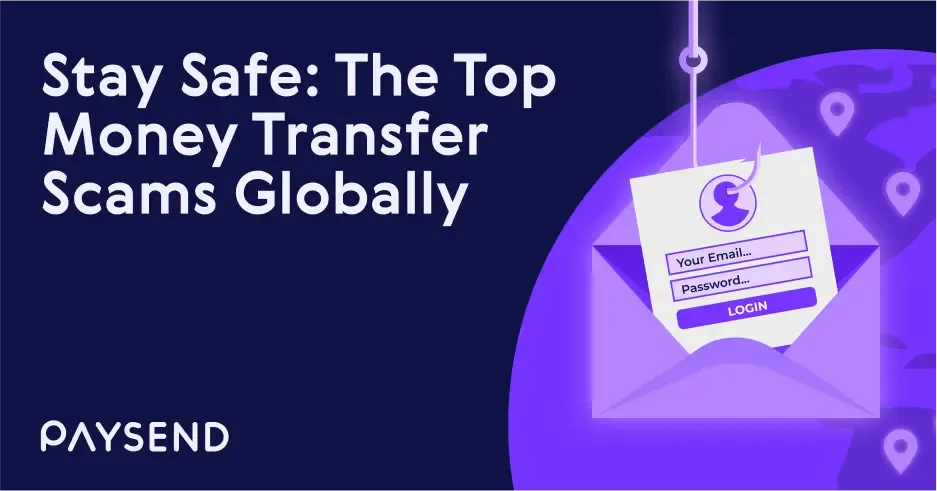Nationwide - sending money abroad

Nationwide is a building society based in the UK which has 15 million customers. Although many use it for their banking and savings, Nationwide can also be used to send money abroad.
But is it worth transferring money internationally with Nationwide given that there are specialist money transfer services that can be easier, cheaper and faster?
We’ve put together this handy blog with some key information about using Nationwide for your money transfers, including some of the pros and cons of using Nationwide to send money abroad.
This way, you can decide whether Nationwide is the right money transfer provider for you. So read on if you’re considering using Nationwide for your next transfer!
How to send money abroad with Nationwide
With Nationwide, you can choose to either go in-branch to make a transfer with the help of a Nationwide cashier, or use Nationwide’s web browser service to transfer funds to your recipient, although not via their banking app.
Check out Paysend Global Account, which lets you hold different currencies and send money abroad from the app.
You should bear in mind that in order to send money abroad with Nationwide you’ll need to have a bank account with them. You can only send or receive money from your Nationwide current account, not your savings account.
Here are the details you’ll need to send money abroad with Nationwide:
- The details of the recipient, including their name and address
- Their International Bank Account Number (IBAN) or account number
- The name, address and Bank Identifier Code (BIC) of the bank receiving the funds
- A card reader
How much does it cost to send money abroad with Nationwide?
Send money to an EEA country using Nationwide is possible with no transfer fee, but to send money to any other country worldwide will cost you a flat fee of £20.
You’ll need to have enough in your Nationwide bank account to cover this, or the transaction won’t go through.
What are the pros and cons of sending money with Nationwide?
There are plenty of money transfer options to choose from, both online and offline, so how do you know if Nationwide is right for you?
Here are some of the pros and cons of using Nationwide for your money transfers, based on cost, speed and simplicity:
Pros:
- Can be useful if you already bank with Nationwide - you won’t need to set up a new account
- No limit on how much you can send
- Low-cost transfers within EEA
Cons:
- You can’t send money abroad using the Nationwide app
- You’ll need lots of details to send money to someone in another country
- Expensive if you are sending money outside of Europe
- You need to be a Nationwide bank account holder to use the service
- Can take longer than 4 working days for the money to be sent
Is there another option to Nationwide?
When you make a transfer, you want to find the cheapest way to send money abroad. Nationwide may not be the best option if you’re looking to reduce fees, because if you’re sending money outside of Europe Nationwide is significantly more expensive than other providers. It’s a good idea to take a look at all of the options available before making your decision about which platform you use.
Paysend Global Transfers is a fast, affordable and hassle-free money transfer app and web browser platform that lets you send money directly to bank accounts or straight to cards - all you need is the recipient’s name and card number!
Money transfers to bank accounts with Paysend have zero transfer fees, and to cards cost just £1, €1.5 or $2 (or equivalent amount). Paysend uses excellent, competitive exchange rates, so if you make international transfers with Paysend you could save yourself some money!
On the Paysend homepage you can find a useful tool to help you find out if your money transfers with Paysend are cheaper than with Nationwide. Click here to visit the homepage and get started.
Latest Posts

Sending money internationally has never been easier, but as digital payments become more popular, so do scams targeting unsuspecting senders. Fraudsters use various tactics to deceive people into transferring money, often pretending to be banks, employers, or even loved ones in distress.
To help you stay protected, we’ve outlined some of the most common and most recent money transfer scams happening around the world and how you can avoid them.

Sending money to Poland isn’t just about transactions - it’s about staying connected with loved ones, supporting family, and helping celebrate life’s special moments. Whether it’s funding daily expenses, contributing to education, or lending a hand during festive occasions, the process should be fast, secure and hassle-free. With Paysend’s partnership with Visa, transferring money to Poland has never been easier.